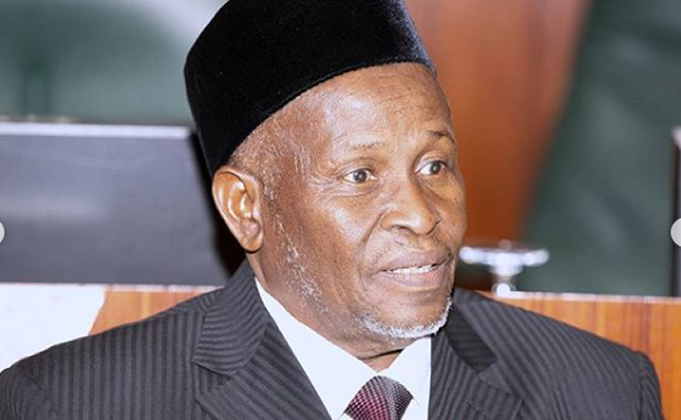Attorneys-General of Nigeria’s South West Zone have resolved to seek a constitutional interpretation of virtual court hearings as set out in the National Judicial Council (NJC) Guidelines and sundry Practice Directions issued by heads of courts, CITY LAWYER can exclusively report.
Speaking today at an Attorneys-General Colloquium on “Remote hearing and e-filing in Nigeria: A broader perspective and practical, foolproof implementation,” Ekiti State Attorney-General & Commissioner for Justice, Mr. Olawale Fapohunda said the Attorneys-General of Lagos, Ondo and Oyo States would head to the Supreme Court tomorrow to test the constitutionality of remote hearings.
His words: “Since the National Judicial Council issued its Guidelines for court sittings in this COVID-19 period, we have had a national conversation particularly among justice sector stakeholders on the constitutionality or otherwise of remote court hearings.”
Continuing, the leading justice reform advocate said: “Let me however quickly use this opportunity to inform participants that following a resolution of the South West Attorneys-General, the Attorneys-General of Lagos, Ondo and Oyo States have decided to approach the Supreme Court to seek a constitutional interpretation of Section 36(3) & (4) of the 1999 Constitution, particularly as it relates to remote court hearings. We will be filing the necessary papers in the Supreme Court tomorrow.”
Fapohunda, who was the Host of the webinar organized by Ekiti State Ministry of Justice and LawPavilion, added that “We are convinced that a definite pronouncement by the Supreme Court is necessary in order to put the matter at rest once and for all.”
Since the issuance of the NJC Guidelines and several Practice Directions on virtual court hearings, some jurists have argued that virtual hearings violate the 1999 Constitution on the requirement that court hearings must be held in public.
Section 36(3) and (4) of the 1999 Constitution provides as follows:
“(3) The proceedings of a court or the proceedings of any tribunal relating to the matters mentioned in subsection (1) of this section (including the announcement of the decisions of the court or tribunal) shall be held in public.
(4) Whenever any person is charged with a criminal offence, he shall, unless the charge is withdrawn, be entitled to a fair hearing in public within a reasonable time by a court or tribunal:
Provided that –
(a) a court or such a tribunal may exclude from its proceedings persons other than the parties thereto or their legal practitioners in the interest of defence, public safety, public order, public morality, the welfare of persons who have not attained the age of eighteen years, the protection of the private lives of the parties or to such extent as it may consider necessary by reason of special circumstances in which publicity would be contrary to the interests of justice;
(b) if in any proceedings before a court or such a tribunal, a Minister of the Government of the Federation or a commissioner of the government of a State satisfies the court or tribunal that it would not be in the public interest for any matter to be publicly disclosed, the court or tribunal shall make arrangements for evidence relating to that matter to be heard in private and shall take such other action as may be necessary or expedient to prevent the disclosure of the matter.”
Other speakers at the webinar were the Managing Director of LawPavillion Business Solutions, Mr. Ope Olugasa and the Group Managing Director of Telnet Nigerian Limited, Mr. Folorunsho Aliu. According to the organisers, participants at the webinar attended by CITY LAWYER included justice sector stakeholders, legal practitioners, court officials, and law enforcement agencies.
Please send emails to citylawyermag@gmail.com. Copyright 2018 CITY LAWYER. All materials available on this Website are protected by copyright, trade mark and other proprietary and intellectual property laws. You may not use any of our intellectual property rights without our express written consent or attribution to www.citylawyermag.com. However, you are permitted to print or save to your individual PC, tablet or storage extracts from this Website for your own personal non-commercial use.

